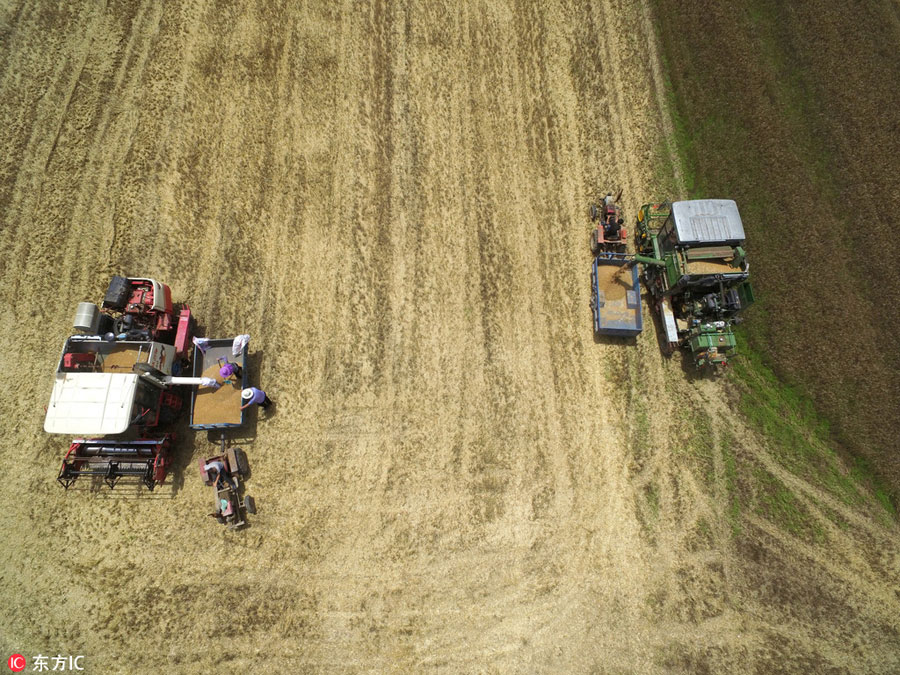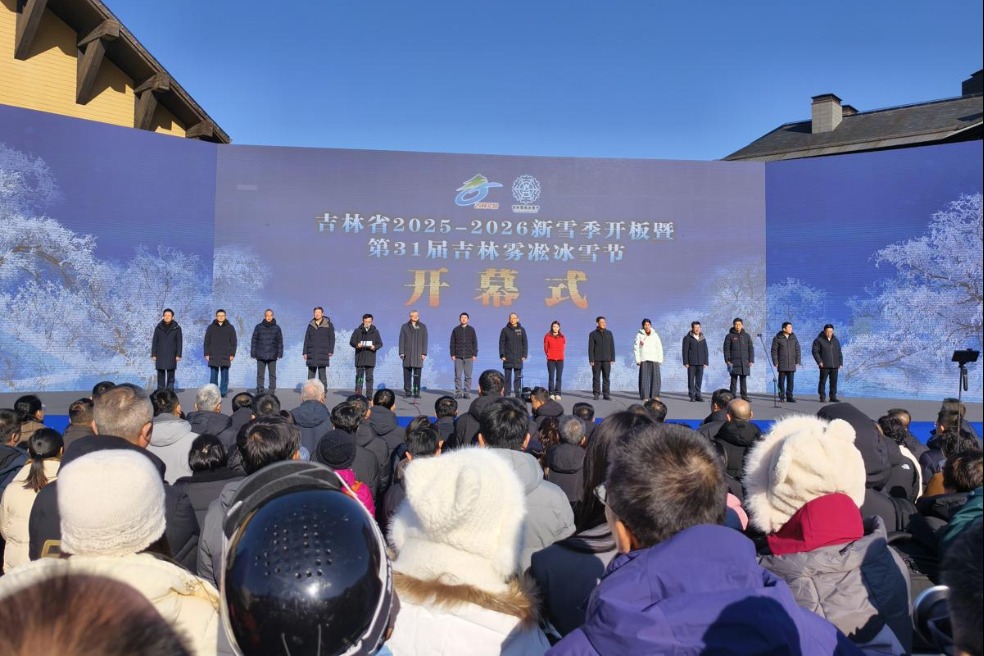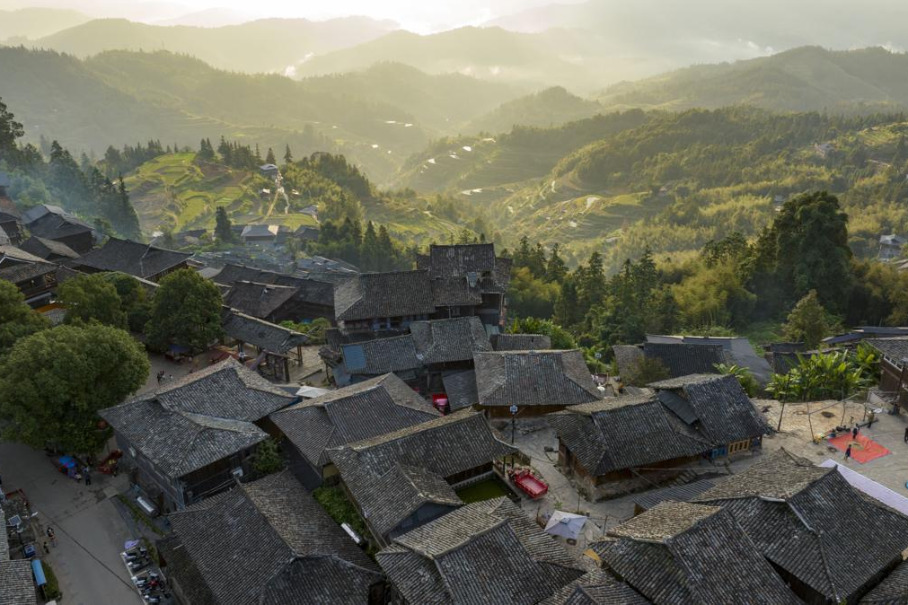Chinese scientists complete whole genome sequencing of ancient wheat seeds


CHANGCHUN - Chinese scientists have sequenced the whole genome of 3,800-year-old wheat seeds unearthed from Xinjiang Uygur autonomous region, decoding the food crop's spreading route into China.
Four Chinese institutes jointly conducted the research. The scientists extracted DNA from seven ancient wheat seeds discovered from Xiaohe and Gumugou cemeteries in Xinjiang, which is an essential geographic intersection between the East and the West.
Cui Yinqiu, a professor of the School of Life Sciences in Jilin University, involved in the research, said the dehusked and well-preserved seeds randomly selected from the archeological sites have the genomic similarity with wheat currently grown in Southwest China.
The scientists proposed that the common wheat dispersed from the Qinghai-Tibet Plateau in West China to the Yangtze River valley in central and eastern China.
The research provided detailed information on the origin, dispersal and genetic improvement for the cultivation of present-day wheat and was published on the latest issue of the international science journal "The Plant Journal."
- Jilin kicks off 2025-26 snow season with grand opening event
- China hails 'hard-won' COP30 Global Mutirao decision
- China-SA science exhibition showcases innovation, cultural exchange
- China opens draft regulations on data protection to public consultation
- Veteran French physicist elected to Chinese Academy of Sciences
- Former Polish deputy PM praises China's economic rise, growing influence




































